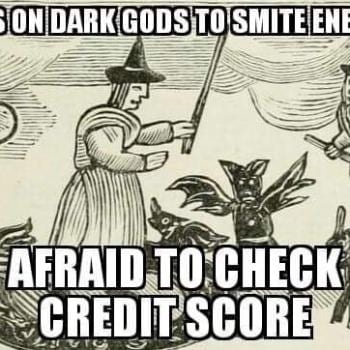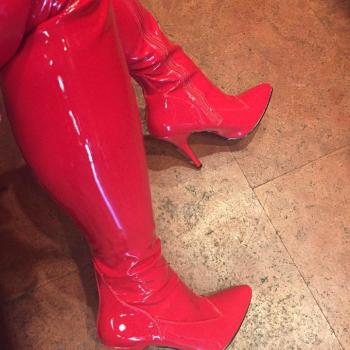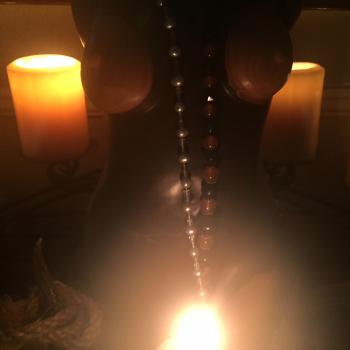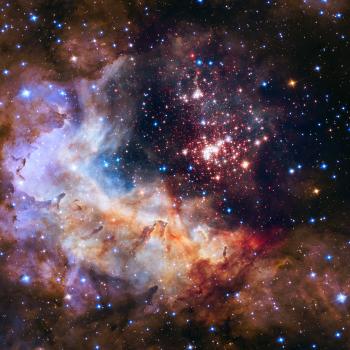When I was a student in the Netherlands, one concept that I enjoyed playing with was the idea of American Apocalysm. This is a term I created to describe a cultural phenomenon that puzzled my European friends. My discipline was religious studies, and the majority of the Dutch folks I encountered self-identified as atheist. The churches within walking distance of my flat in Amsterdam had all been converted into clubs and music venues decades ago. The other international students I met, (with a few notable exceptions), also identified as non-religious. The American obsession with apocalyptic narrative fascinated them, and I was asked to explain why it seemed that Americans were always discussing “the end of the world” and related ideas.

I admit I had no clear answer to this question. For me, it was unusual to encounter folks who did not operate within a cultural framework of the “end times.” These folks were neither for or against, but merely curious as to why this concept is so prevalent in multiple conversations of politics, art, and culture. One friend noted that compared to the rest of the Western world, particularly continental Europe, the United States had experienced a much smaller amount of war, pestilence, and famine when compared to the Old World. We are younger, richer, and arable land is plentiful and cheap. So why the conviction that it will all end sooner than later?
My counter to this was that United States history incorporates a larger story, and the conquest of Manifest Destiny and colonialism shows that our slice of the planet is just as blood-soaked as any other land mass one cares to name. We also have a history of attracting religious extremists who are either fleeing religious persecution, or wish to enact their private versions of heaven on earth, which includes punishment for those not in alignment with that vision. This creates a mixed bag of competing ideologies. The one constant assumption is that the end is here. We are either harbingers of it, or powerless to prevent it.
American Apocalysm is pervasive. It’s origins may have been Judeo-Christian, but this idea directly influences, and flourishes, in contemporary Pagan discourse. Noticing a lot of talk online these days about the end of… fill in the blank. The end of Paganism. The end of capitalism. The end of the planet through environmental collapse. Those who don’t agree or are less alarmist are labeled as part of the problem. Attacked for being non-believers, accused of being inauthentic. Panic. Disaster. Catastrophe. I often wonder if people who espouse these views ever take a step a step back from the conversation and examine how similar this rhetoric is to other religious dogma that they claim to be so distinct and separate from? Reductionism does not get a pass just because it comes from a Pagan source. Arguments that advocate a “for or against” mentality for complex and nuanced challenges have always been a turn off for me. Feels too close to the blame and shame game I have witnessed and experienced in previous thought experiments. If one does not agree with X, then one is clearly Y. If you do not believe what I am selling, then you are clearly ignorant. There is no time to discuss alternatives, we must be in alignment because everything is on fire RIGHT NOW.
I get it. I am a product of this mentality. I grew up and live in the United States. A large part of my undergraduate work favored Post-modern Literature, and I indulge in nihilistic philosophy. My humor is dark and twisted. I have had a lifetime of betrayal, violence, and instability. Personally, I have been used, abused, and discarded. And yet, I am still here. I am still smiling. Like REM says, “It’s the end of the world, and I feel fine.” Why is this? Because I am Pagan, and I know that every ending is a beginning. Nature abhors a vacuum, and energy is neither created nor destroyed. I reject the message of powerlessness. We have problems, we create solutions. I believe in magick, which is the power of choice. We choose to be helpless in the face of adversity. We choose to become heroes. It begins with our mindset. No one can choose for you. This concept is presented in Margaret Atwood’s “The Handmaid’s Tale.” Nolite te bastardes carborundorum – Don’t let the bastards grind you down.
I was blessed to have the opportunity to step out of my culture and gain some context in the wider history of ideas. I gained perspective on American Apocalysm. This is a regressive tactic to keep people in fear of the unknown, to sway popular opinion and control/predict human behavior. It disappoints me to see so many Pagans of different backgrounds falling for it. This is understandable. We are experiencing a massive awakening, which creates cognitive dissonance. It is easy to fall back into the narratives we grew up with, it is a coping mechanism. We disguise these familiar arguments in New Age jargon and claim it as revelation, but the dismal song remains the same. Repent, align, bow to the consensus or be branded a heretic. Ethically questionable, morally bankrupt, we will ostracize those who do not fall into line. Be fearful, for the end is nigh.
My answer to these arguments is a resounding… Fuck No. I am done with arguments based in shame and guilt. The sooner we stop proselytizing American Apocalysm, the sooner we begin creating viable solutions. For those who are new to the conversation, my sympathies are with you, but there is simply no need to waste one’s time or mental space on useless angst. It either turns inward, or lashes outward. Very few have the capacity to transmute it into effective action. While the adage “one cannot eat money” is absolutely true, likewise one cannot subsist on feelings alone. Outrage and righteousness create equal parts of indigestion. The ashes of the past grow the seeds of the future. Encountered a meme today that sums it up: Apocaloptimist – someone who knows it’s all going to shit, but still thinks it will turn out OK. We need more of this. Let’s create something new.
















